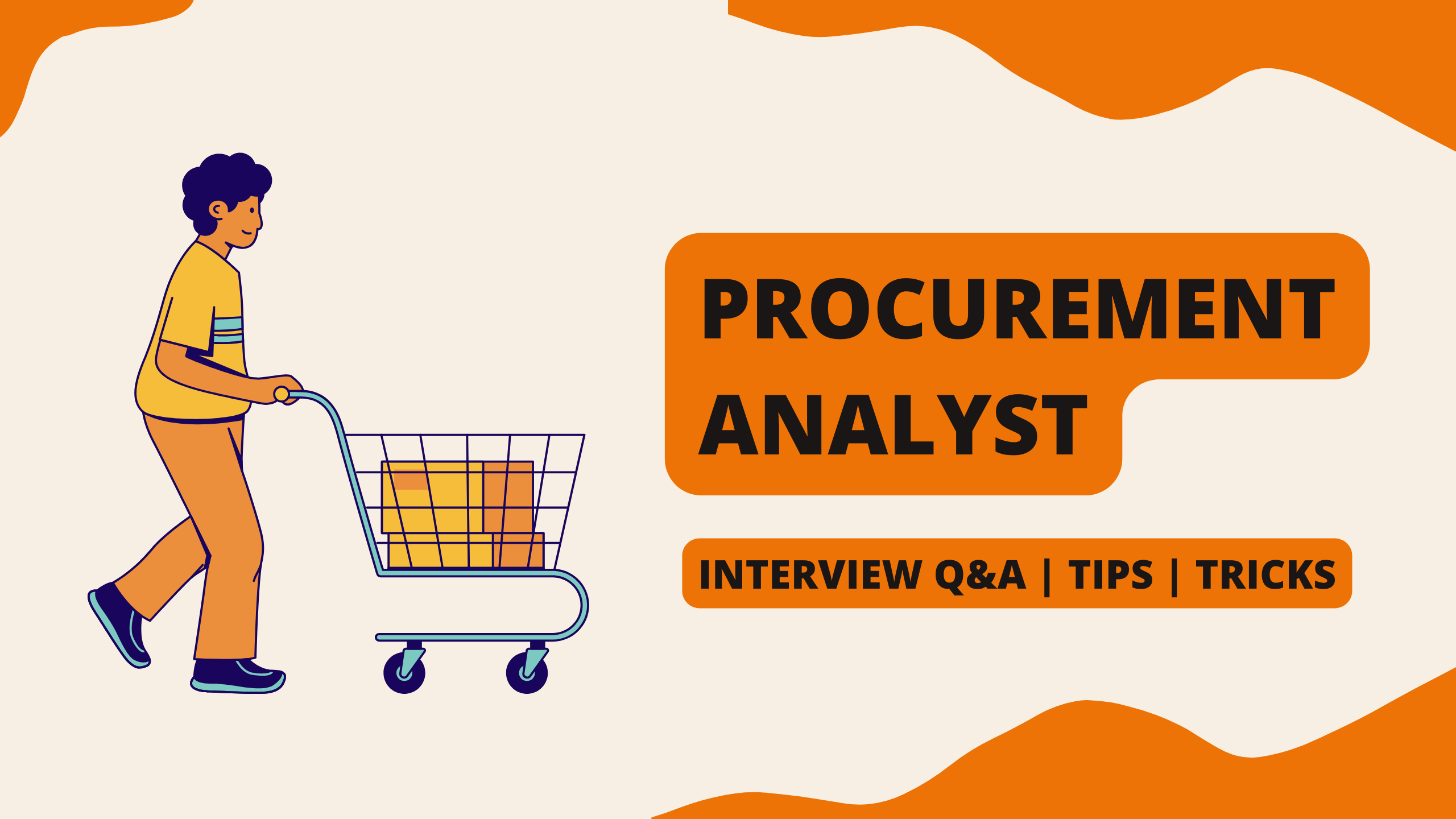Blog Detail

Guide to Accounting Clerk Interview Process in Canada
Jun 17, 2024
Guide to Accounting Clerk Interview Process in Canada
Introduction
Accounting clerks play a crucial role in the financial health and efficiency of organizations across Canada. As businesses expand and regulatory requirements evolve, the demand for skilled accounting professionals continues to grow. If you're aspiring to become an accounting clerk in Canada, you'll likely encounter a rigorous interview process designed to assess your qualifications, skills, and fit within the organization.
In this comprehensive guide, we'll delve into the nuances of the accounting clerk interview process in Canada. From understanding the role to preparing effectively and navigating common interview questions, this resource aims to equip you with the knowledge and confidence needed to excel in your job interview.
Understanding the Role of an Accounting Clerk
Before delving into interview preparation, it's essential to have a clear understanding of the role of an accounting clerk. Accounting clerks are responsible for performing various financial tasks, including:
1. Recording financial transactions
2. Reconciling bank statements
3. Processing invoices and payments
4. Assisting with payroll processing
5. Maintaining financial records and documentation
6. Generating financial reports
In essence, accounting clerks serve as the backbone of an organization's financial operations, ensuring accuracy, compliance, and efficiency in financial processes.
Preparing for the Interview
1. Research the Company: Gain insights into the company's industry, size, culture, and financial health. Understanding the organization's background and values will help you tailor your responses during the interview.
2. Review the Job Description: Pay close attention to the job description and identify key skills, qualifications, and responsibilities. Tailor your responses to highlight how your experiences align with the requirements outlined in the job posting.
3. Refresh Your Accounting Knowledge: Brush up on fundamental accounting principles, terminology, and software skills. Familiarize yourself with commonly used accounting software such as QuickBooks, Sage, or SAP.
4. Practice Common Interview Questions: Anticipate and practice responses to common accounting clerk interview questions. This includes questions about your experience, problem-solving abilities, attention to detail, and familiarity with accounting software.
5. Prepare Questions to Ask: Prepare thoughtful questions to ask the interviewer about the role, team dynamics, and organizational culture. This demonstrates your interest in the position and allows you to gather valuable insights.
During the Interview
1. Arrive Early: Plan to arrive at least 10-15 minutes before your scheduled interview time. This allows you to compose yourself and demonstrates punctuality and professionalism.
2. Dress Appropriately: Dress in professional attire that reflects the company's culture and industry standards. Opt for conservative business attire to make a positive first impression.
3. Demonstrate Confidence and Enthusiasm: Maintain eye contact, offer a firm handshake, and communicate with confidence and enthusiasm. Showcase your passion for accounting and your eagerness to contribute to the organization's success.
4. Provide Specific Examples: When answering interview questions, provide specific examples from your past experiences to illustrate your skills, accomplishments, and problem-solving abilities.
5. Ask for Clarification if Needed: If you encounter a question that you're unsure about, don't hesitate to ask for clarification. It's better to seek clarification than to provide an inaccurate or incomplete response.
How to Follow Up After Your Accounting Clerk Interview?
Following up after an accounting clerk interview is a critical step in the job application process. It demonstrates your professionalism, reinforces your interest in the position, and keeps you on the hiring manager's radar. Here's a guide on how to effectively follow up after your accounting clerk interview:
1. Send a Thank-You Email
Promptly send a personalized thank-you email to each person you interviewed with, typically within 24 hours of the interview. In your email, express gratitude for the opportunity to interview and reiterate your interest in the position. Be sure to mention specific aspects of the interview that you found insightful or engaging. Keep the email concise, professional, and error-free.
Example:
Dear [Interviewer's Name],
I wanted to express my sincere gratitude for the opportunity to interview for the accounting clerk position at [Company Name]. It was a pleasure meeting with you and discussing how my skills and experience align with the needs of the team.
I was particularly impressed by [specific aspect of the interview], and I am excited about the opportunity to contribute to [Company Name]'s continued success. Please don't hesitate to reach out if you need any additional information from me.
Thank you once again for considering my candidacy. I look forward to the possibility of joining your team.
Warm regards, [Your Name]
2. Personalize Your Follow-Up
If the interviewer mentioned any specific next steps or timelines during the interview, reference these in your follow-up email. For example, if they mentioned that they would be making a decision within a certain timeframe, politely inquire about the status of the hiring process after that period has passed.
Example:
Dear [Interviewer's Name],
I hope this email finds you well. I wanted to follow up regarding the accounting clerk position at [Company Name]. During our interview, you mentioned that you would be finalizing your decision by [specific timeframe]. I wanted to inquire if there have been any updates or if there is any additional information I can provide to assist with the decision-making process.
I remain enthusiastic about the opportunity to join your team and contribute to [Company Name]'s mission. Thank you once again for considering my candidacy.
Warm regards, [Your Name]
3. Maintain Professionalism
Remain professional and courteous in all your interactions with the hiring manager and members of the hiring team. Avoid sending multiple follow-up emails or making repeated phone calls, as this may come across as pushy or desperate. Instead, demonstrate patience and understanding while awaiting a response.
4. Stay Engaged on Professional Platforms
Connect with the interviewer or members of the hiring team on professional networking platforms such as LinkedIn. Send a personalized connection request along with a brief message expressing your appreciation for the opportunity to interview. This allows you to stay connected and informed about potential job openings or developments within the company.
5. Be Prepared for Different Outcomes
Understand that the hiring process can vary from one organization to another, and it may take time for the hiring team to reach a decision. Be prepared for different outcomes, including receiving a job offer, being invited for a second interview, or being informed that you were not selected for the position. Regardless of the outcome, maintain a positive attitude and continue exploring other opportunities in your job search journey.
The Role of Communication Skills in Accounting Clerk Interviews
Communication skills are paramount in accounting clerk interviews, serving as a cornerstone for effective interaction, comprehension, and collaboration within the workplace. In the realm of accounting, where precision, clarity, and attention to detail are essential, strong communication skills play a multifaceted role in facilitating successful interactions both internally and externally. Here's a detailed exploration of the significance of communication skills in accounting clerk interviews:
1. Conveying Technical Knowledge:
During accounting clerk interviews, candidates are often evaluated on their understanding of accounting principles, procedures, and software applications. Effective communication enables candidates to articulate their technical knowledge in a clear and coherent manner, demonstrating their proficiency in areas such as double-entry bookkeeping, financial reporting standards, and software proficiency (e.g., QuickBooks, SAP, or Excel).
2. Clarifying Complex Concepts:
Accounting concepts can be intricate and multifaceted, requiring the ability to explain complex ideas in a simple and understandable manner. Strong communication skills enable accounting clerks to break down intricate concepts, such as accrual accounting or depreciation methods, into digestible explanations that resonate with diverse stakeholders, including colleagues, clients, and supervisors.
3. Active Listening:
Active listening is a fundamental component of effective communication, allowing accounting clerks to comprehend instructions, gather relevant information, and address inquiries or concerns. During interviews, candidates who demonstrate active listening skills by attentively engaging with interviewers, seeking clarification when necessary, and responding thoughtfully to questions showcase their ability to communicate effectively in a professional setting.
4. Written Communication:
Written communication skills are integral for accounting clerks, who frequently engage in tasks such as preparing financial reports, documenting transactions, and corresponding via email. In interviews, candidates may be assessed on their ability to articulate ideas concisely, use proper grammar and punctuation, and convey information accurately through written communication. Clear and professional written communication signals attention to detail and reinforces the candidate's suitability for roles requiring meticulous documentation and correspondence.
5. Interpersonal Skills:
In addition to technical proficiency, interpersonal skills are essential for fostering positive relationships and collaboration within accounting teams. During interviews, candidates may be evaluated on their ability to communicate diplomatically, resolve conflicts constructively, and adapt their communication style to accommodate diverse personalities and perspectives. Strong interpersonal skills enhance teamwork, facilitate knowledge sharing, and contribute to a harmonious work environment conducive to productivity and innovation.
6. Professional Etiquette:
Professionalism and etiquette are integral components of effective communication in accounting clerk interviews. Candidates are expected to demonstrate professionalism through their demeanour, attire, and communication style, projecting confidence, respect, and integrity throughout the interview process. Politeness, punctuality, and courtesy are key elements of professional communication that reflect positively on candidates and reinforce their suitability for roles requiring client interactions, vendor relationships, or stakeholder engagement.
20 Common Interview Questions for Accounting-Clerk and their Answers with Examples
Certainly! Here are 20 common interview questions for an accounting clerk position in Canada along with answers:
1. Tell me about your experience in accounting and finance.
Answer: "I have a bachelor’s degree in accounting and two years of experience as an accounting assistant at XYZ Company. In this role, I handled accounts payable, receivable, and reconciliations. I also assisted in preparing financial statements and liaised with auditors during the annual audit."
2. How do you ensure accuracy and attention to detail in your work?
Answer: "I pay meticulous attention to detail by double-checking my work and utilizing software tools for accuracy. I have developed a systematic approach to reviewing financial documents, reconciling accounts, and identifying discrepancies to ensure precision in all tasks."
3. Can you walk me through your experience with specific accounting software?
Answer: "I am proficient in using QuickBooks and Excel for various accounting tasks, including data entry, generating reports, and reconciling accounts. In my previous role, I utilized QuickBooks extensively to manage accounts payable and receivable, process invoices, and track expenses."
4. How do you handle tight deadlines and prioritize tasks in a fast-paced environment?
Answer: "I thrive in fast-paced environments by setting priorities, creating to-do lists, and utilizing time management techniques. I prioritize tasks based on urgency and importance, ensuring that deadlines are met without compromising accuracy or quality."
5. Describe a challenging accounting problem you encountered and how you resolved it.
Answer: "In a previous role, I encountered a discrepancy in the accounts receivable ledger that resulted in inaccurate financial reporting. I conducted a thorough investigation, identified the source of the error, and implemented corrective measures to rectify the discrepancy. I then developed enhanced reconciliation procedures to prevent similar issues in the future."
6. What accounting regulations and standards are you familiar with?
Answer: "I am familiar with Generally Accepted Accounting Principles (GAAP) and International Financial Reporting Standards (IFRS), which govern financial reporting and disclosure requirements in Canada. I stay updated on changes to accounting standards and regulations to ensure compliance in all financial activities."
7. How do you approach reconciling accounts and identifying discrepancies?
Answer: "I begin by comparing financial records, statements, and transactions to identify inconsistencies or errors. I then conduct a detailed analysis to trace the source of the discrepancy and reconcile the accounts using appropriate adjustments and documentation. Clear communication with stakeholders and attention to detail are key throughout the reconciliation process."
8. Describe your experience with accounts payable and accounts receivable processes.
Answer: "I have extensive experience in accounts payable and receivable processes, including invoice processing, vendor management, and payment reconciliation. I am proficient in verifying invoice accuracy, obtaining approvals, and maintaining vendor relationships to ensure timely payments and effective cash flow management."
9. How do you maintain confidentiality and integrity in handling sensitive financial information?
Answer: "I adhere to strict confidentiality protocols and ethical standards when handling sensitive financial information. I restrict access to confidential data, use secure communication channels, and follow established procedures for data storage and disposal to safeguard against unauthorized access or disclosure."
10. Why are you interested in this position and our company?
Answer: "I am drawn to this position because of the opportunity to leverage my accounting skills and contribute to the financial success of your organization. I am impressed by your company's commitment to excellence, innovation, and employee development, and I am eager to be part of a dynamic team that values integrity and collaboration."
11. How do you stay organized and keep track of multiple tasks simultaneously?
Answer: "I utilize organizational tools such as calendars, task lists, and project management software to prioritize tasks and manage my workload efficiently. I regularly review deadlines, allocate sufficient time for each task, and proactively communicate with stakeholders to ensure alignment and mitigate potential delays."
12. Describe a time when you had to work collaboratively with colleagues or other departments.
Answer: "In my previous role, I collaborated with the finance team and department managers to streamline the budgeting process. I facilitated meetings to gather input, analyzed financial data to identify trends and variances, and presented recommendations for cost-saving initiatives. By fostering open communication and collaboration, we were able to achieve consensus and implement actionable strategies."
13. How do you handle discrepancies in financial statements or reports?
Answer: "When discrepancies arise in financial statements or reports, I conduct a thorough analysis to identify the root cause and rectify the errors. I collaborate with relevant stakeholders to gather additional information, reconcile accounts, and adjust entries as needed to ensure accuracy and compliance with accounting standards."
14. How do you ensure compliance with tax regulations and reporting requirements?
Answer: "I stay abreast of tax regulations and reporting requirements by regularly reviewing updates from regulatory authorities and attending professional development seminars. I maintain accurate records, ensure timely filings, and collaborate with tax advisors to address complex tax issues and optimize tax strategies for the organization."
15. Can you discuss your experience with budgeting and forecasting?
Answer: "I have experience in budgeting and forecasting processes, including analyzing historical data, identifying trends, and developing financial projections. I collaborate with department managers to establish realistic budget targets, monitor variances, and adjust forecasts as necessary to align with organizational goals and objectives."
16. How do you handle situations where you need to communicate complex financial information to non-financial stakeholders?
Answer: "I employ clear and concise communication techniques to convey complex financial information to non-financial stakeholders. I avoid jargon and technical terms, use visual aids such as charts or graphs to illustrate key points, and provide relevant context to facilitate understanding and decision-making."
17. What steps do you take to ensure accuracy in payroll processing?
Answer: "I meticulously review payroll data for accuracy, including hours worked, employee deductions, and tax withholdings. I conduct regular audits to identify discrepancies, verify calculations, and reconcile payroll records with financial reports to ensure compliance with regulatory requirements and timely disbursement of salaries."
18. How do you handle situations where you encounter conflicting priorities or deadlines?
Answer: "I prioritize tasks based on urgency, impact, and alignment with organizational objectives. I communicate proactively with stakeholders to manage expectations, negotiate deadlines when necessary, and seek assistance or delegate tasks to ensure all priorities are addressed effectively without compromising quality or accuracy."
19. Can you discuss your experience with financial analysis and reporting?
Answer: "I have experience in conducting financial analysis and preparing comprehensive reports to support decision-making and strategic planning. I analyze financial statements, assess performance metrics, and identify opportunities for improvement or risk mitigation. I present findings and recommendations to key stakeholders, providing actionable insights to drive business growth and profitability."
20. How do you stay updated on changes in accounting regulations and industry trends?
Answer: "I stay informed about changes in accounting regulations and industry trends through professional development seminars, industry publications, and networking with peers and industry experts. I actively participate in continuing education programs and maintain memberships in professional organizations such as the Canadian Institute of Chartered Accountants to ensure ongoing competency and compliance with evolving standards."
These answers are meant to provide guidance and inspiration for crafting your responses during an accounting clerk interview in Canada. It's important to personalize your answers based on your unique experiences, skills, and qualifications to effectively showcase your suitability for the position. Additionally, practice answering these questions aloud and seek feedback from peers or mentors to enhance your interview performance.








